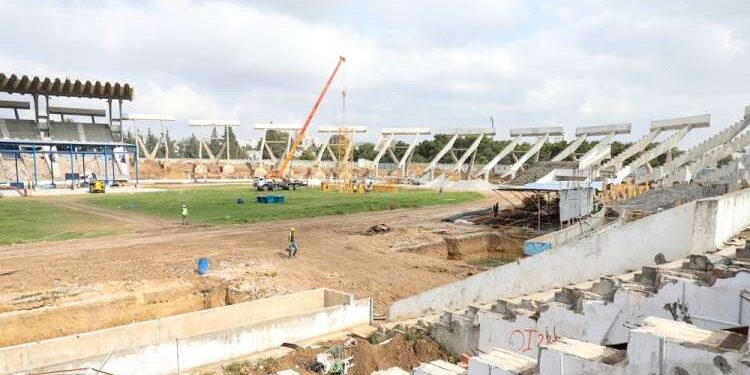The Minister of Youth and Sports, Kamel Déguhe, said that the sports infrastructure file is currently one of the most pressing files, with the aim of renewing and rehabilitating them, in accordance with international standards, highlighting the need to ensure governance in the management and exploitation of these spaces.
The Minister revealed, in an interview with the Tunis Africa Press agency, the efforts made to rehabilitate a certain number of football stadiums so that they can be exploited during national and foreign competitions, which would reduce the charge of the Hammadi Agrebi stadium in Radès, which is currently considered the only qualified to host international matches. In this context, he said that the redevelopment of the El Menzah Olympic stadium continues as planned, and that this stadium should reopen in November 2024.
Regarding the Chedli Zouiten stadium, Déguhe indicated that purely security reasons prevented the exploitation of the stadium despite the good condition of its lawn and its locker room, announcing that the ministry is used in coordination with the Ministry of the Interior to find a solution to this problem in the coming weeks, through the other solutions, the reduction in the number of authorized supporters.
With regard to the Sousse Olympic Stadium, Kamel Dégué highlighted the concern of the State to complete the remaining work and which are technical work, in coordination with the entrepreneur in charge of this project so that he is qualified to host matches, in accordance with international standards.
About the Sfax Taieb Mhiri stadium, he added that funds had been allocated about 9 months ago for the extension of this space, but everything was suspended following the project presented by the former governor concerning, according to him, the construction of a new stadium on a piece of land already ready and with available funds.
The Minister affirmed the State’s attachment to his obligations and commitments concerning the realization of the project to extend the Mhiri stadium, adding that “the idea of building a new stadium is for the moment unrealistic because of the high cost and the difficulty of its accomplishment in view of the difficult economic conditions that the country is going through, while the dream of a Mediterranean city remains possible, in the event that a funding formula coming from foreign investments”.
On the other hand, Déguice indicated that around 90% of sports facilities belong to the municipalities, most of which, he said, remain incapable of ensuring their maintenance, which prompted the ministry to offer the creation of a national safeguarding agency for sports facilities which will be responsible for the maintenance of sports infrastructure, while encouraging the Public-Privé-Privé and Creation of academies or the signing of “naming” contracts with economic enterprises over a long period in exchange that these give their names to sports infrastructure, to disseminate their brands and to carry out a certain number of projects within the establishment.
“This kind of sponsorship allows the state to get rid of the burden on maintenance and maintenance expenses and guarantees it important revenues,” he said.








